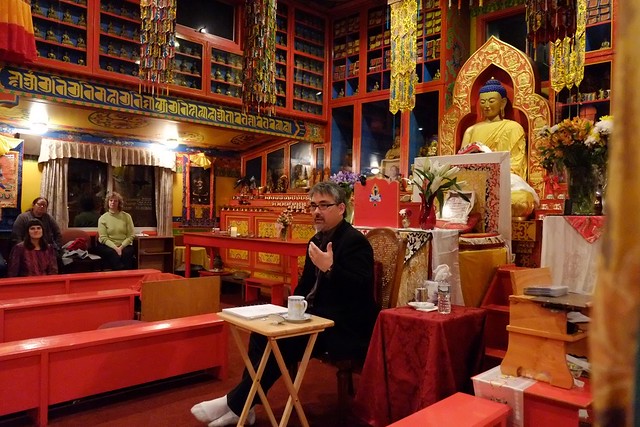I’m going to be going to Amsterdam in November to promote the Dutch edition of my new book REST, and one of the events I’ll do is a talk organized by the School of Life on November 23.
I was looking at the logistical details, and it turns out that the evening will be held at the Westerkerk, a 17th-century Protestant church that’s one of the largest in the Netherlands and looks absolutely spectacular (and has a great view of the city).
When I was younger I did a lot of choral singing at churches, so I’m more familiar performing in this kind of environment than your average non-religious person. Indeed, I find myself writing about subjects that aren’t precisely religious in nature, but do overlap with religious issues, or are explored by theologians and ministers.
And one of my favorite contemplative computing talks took place at a Buddhist monastery in upstate New York.
Nothing like an audience of thousands of divinities to call out your A game!
So perhaps speaking the Westerkerk will offer a chance to reflect a bit on the religious or spiritual dimensions of rest (what a rich topic!), and at least note the degree to which rest has been seen not just as a respite or idleness, but as an opportunity for restoration and common with the divine– turning it from the absence of work into a time with its own purpose, a purpose that we often forget in our more secular world.
Too often we see rest as either disposable (which it’s not), or just as a negative space defined by the absence of work– which it shouldn’t be. Thinking of it this way impoverishes rest, and reduces our appreciation of its potential and value to us. Arguably, observance of the Sabbath provided a framework for experiencing rest as valuable, and the retreat of religious observance has left us in need of a new foundation for making sense of rest in our lives.
